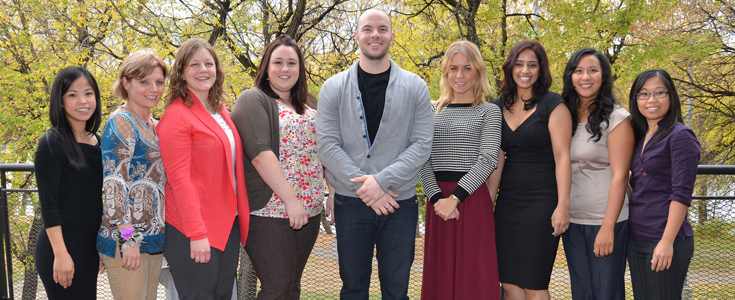A closer look at critical care education
Exciting opportunities exist for nurses in critical care, emergency and perioperative nursing. Specialty orientations are a component for these types of nursing. Depending on the specialty and program, you may either be able to earn as you learn or be hired in that specialty after finishing the orientation.
One specialty to consider is acquiring the education and ability to care for critically ill patients. Three times a year, the Winnipeg Critical Care Nursing Education Program prepares registered nurses to work within areas such as the medical, surgical, intermediate, neonatal and pediatric ICUs.
"We're looking for individuals with at least a year - preferably more - of solid acute med/surg type of nursing," says Lissa Currie, Coordinator, Critical Care Education.
If you've ever wondered about the critical care nursing program but weren't sure if this is right for you, consider a shadow shift before you commit to the learning process.
If you know this is what you want, apply for the program and go through the interview process. "The interview process helps us to assess applicants' critical thinking, problem solving and communication skills," says Currie.
If you are accepted, you have the option of taking pre-arrhythmia classes a month and a half before the start date. There are five classes that typically run from 8:30 am - 12:30 pm. "This option enables nurses to lighten their workload once the program starts, which has been successful with students," says Currie.
The program itself is a mixture of theory, lab and clinical. Throughout the eight weeks of theory, they will also go to the ICU approximately four or five times. "This helps to familiarize them with the environment, staff, and gives them an opportunity to perform some of the new ICU skills in a real setting. The ICU tours have been very positively received based on student feedback," says Currie.
Following the theory portion, students have a chance to buddy with a clinical nurse for six weeks, three in a medical ICU and three in a surgical ICU. The buddied experience helps them to increase their independence gradually while in a supported role. If a nurse is sponsored by Concordia Hospital or the Victoria General Hospital, their training takes place at St. Boniface Hospital due to the similarity of equipment. Likewise if a nurse is sponsored by the Grace Hospital or Seven Oaks General Hospital, their training will take place at Health Sciences Centre.
Once they have returned to their home site, students have another five to 10 weeks of specialized orientation that allows students the chance to become fully immersed in the specifics of the patient population they're going to be caring for. During this time, they are independent practitioners but working with a preceptor, which helps nurses build even further confidence in their new skills and abilities.
Staff who are working on the units are actively involved in the training of the students. "Staff in the units are key to the success of students in the clinical portion," says Currie. "They act as a role model, mentor and teacher to the students."
To support the ICU staff in this role, a preceptor workshop is offered twice a year. This helps provide them with the right tools in mentoring and evaluating students.
During their last week in the program, taking two days of Advanced Cardiac Life Support is the final step for students before graduating.
Other education opportunities for critical care nurses include education sessions hosted by the Manitoba Chapter of the Canadian Association of Critical Care Nurses

